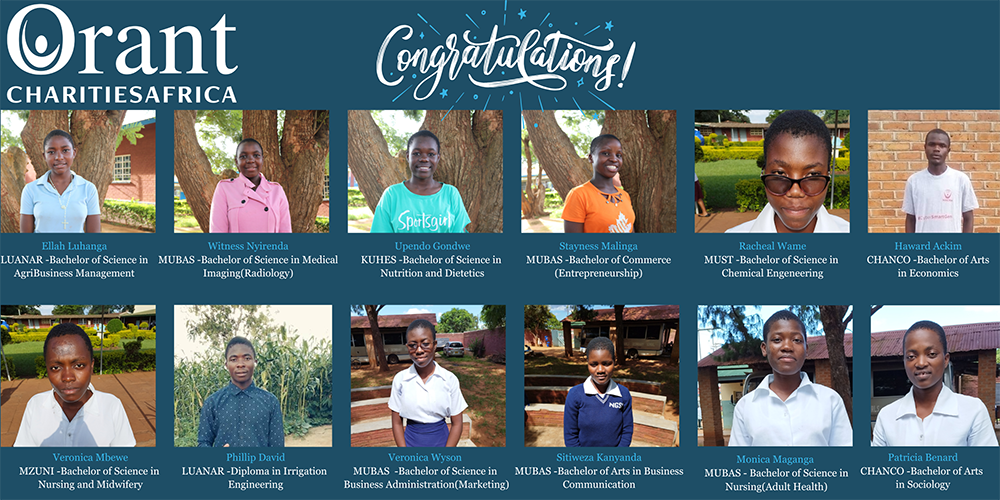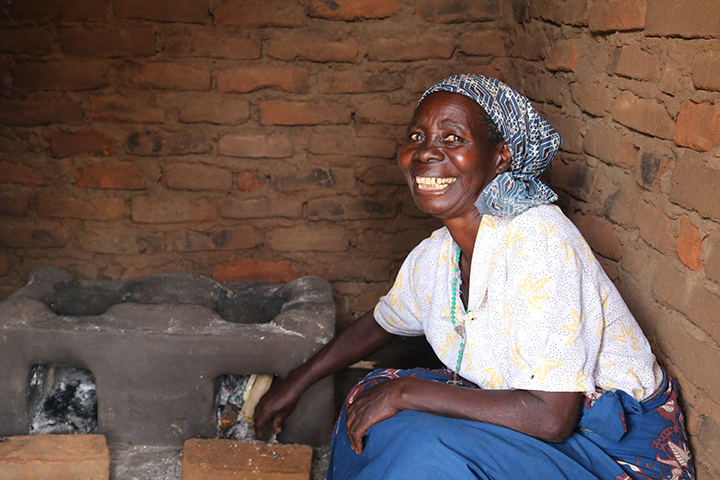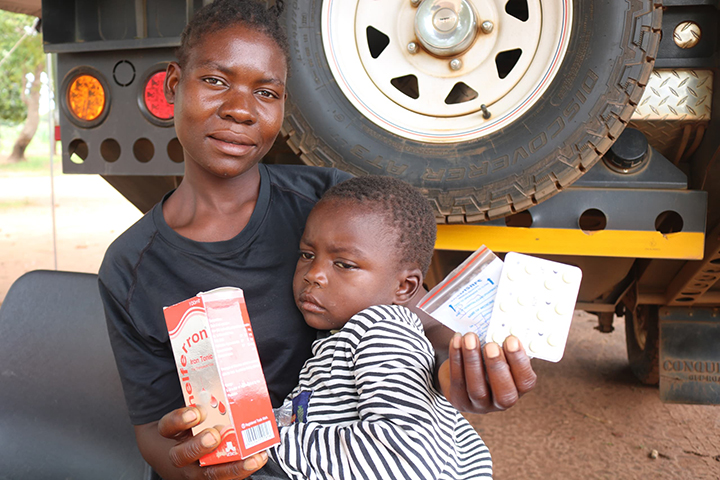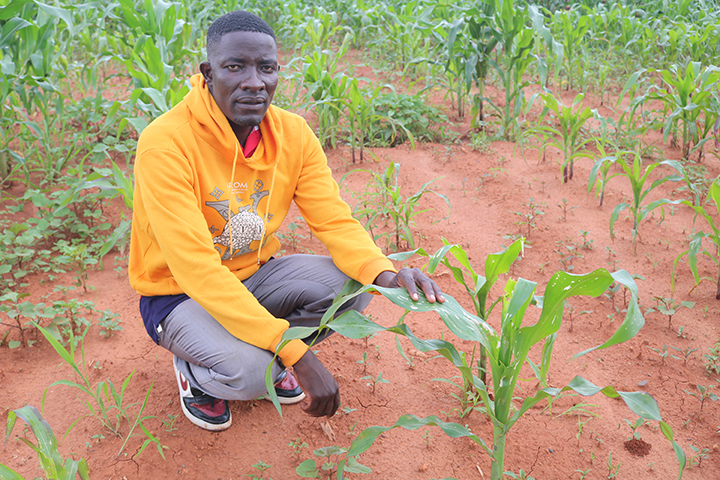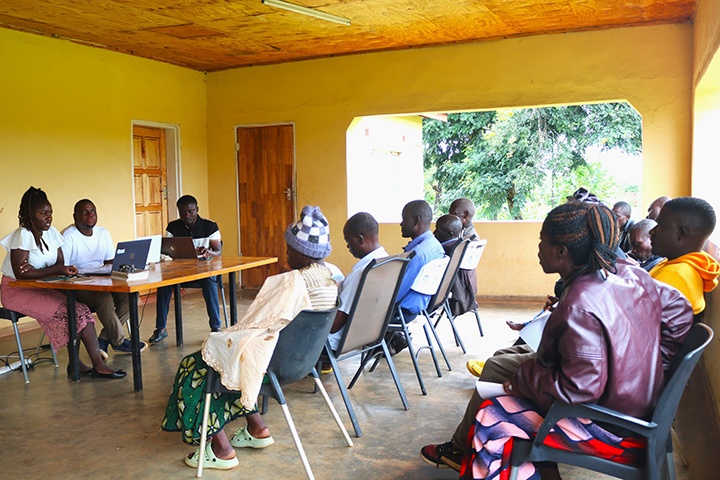We are overjoyed to announce that 12 of our 29 students who sat for the Malawi School Certificate of Examinations have been selected to various universities! As we celebrate this milestone, we would like to share biographies of some of the students.
The Culture of Malawi: A Continuation to Malawian Proverbs
 Author: Praises Padambo
Author: Praises Padambo
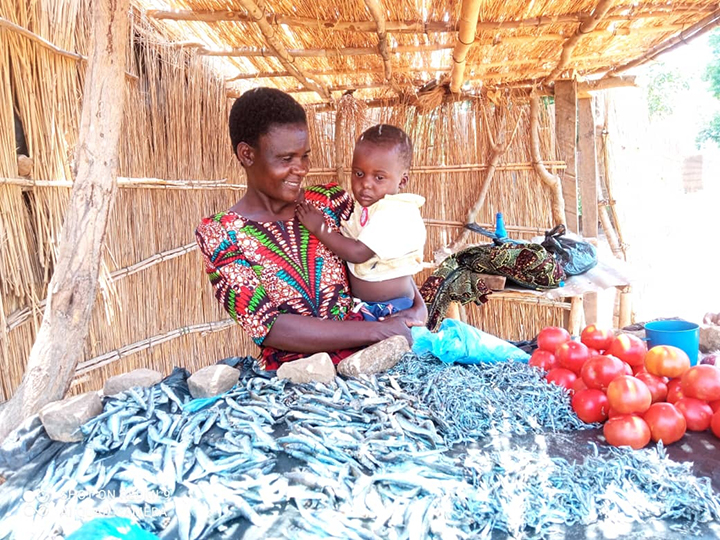
The Culture of Malawi: A Continuation to Malawian Proverbs
Proverbs are not merely words. They are wisdom and guiding principles for society. Proverbs hold layers of meaning and serve as guiding principles for behavior and decision-making. These sayings are found in daily conversations, used by parents, elders, leaders, and even children in ways that help preserve the cultural fabric of Malawi.
More Proverbs of Wisdom and Reflection
Papsa tonola sudziwa mtima wa moto
- This proverb is a valuable reminder about the importance of being proactive and seizing opportunities as they come. Drawn from the act of roasting green maize, where one is advised to roast and eat as they go, lest the maize burns. Thus, it is wise to enjoy the benefits of your efforts step by step, rather than waiting for the entire process to finish, as things may go wrong in the end.
Ukapeza anzako akukazinga maso, nawe tonola ako
- The English version of this is when you are in Rome, do what Romans do. This proverb encourages socialization and adaptability among individuals. It encourages people to blend in with others, new environments and customs. It speaks to the idea of social conformity, advising that blending in with the group and participating in shared activities is key to making meaningful connections.
Safunsa anadya phula
- The focus here is on the value of curiosity and asking questions. It advises that if you don’t ask, you may end up missing out or making avoidable mistakes. In other words, not seeking help or knowledge could lead to unnecessary difficulties.
In Malawi, proverbs serve more than just as cultural expressions; they are teaching tools. They are used to instill moral values, educate and guide in decision making. By weaving proverbs into daily conversations, we impart wisdom and offer solutions to the challenges that life presents.
Stay with us as we continue this exploration of Malawi’s rich cultural heritage, learning how ancient wisdom still speaks to us today.
The Orant Journal
Esther Maupa’s Inspiring Journey
Early this week, we celebrated Esther Maupa's graduation from Mwimba College of Agriculture! As promised, today we are sharing her full story of how she overcame challenges and achieved success! Read our latest blog article to get inspired by Esther's journey!
Introducing Nkhuni Pang’ono Moto
We are proud to share an update on our Energy and Environment program, which aims to promote sustainable practices in Kaondo and surrounding villages. In this week’s blog article, we share about the progress we have made in introducing firewood-saving stoves, called Nkhuni Pang’ono, Moto! Meaning “Less firewood, A Lot of Fire.”
Play for a Purpose – Education Equality
Orant’s spring fundraiser, Play for a Purpose: Bingo for Education Equality, is this week. Today we’re presenting you with a special edition of our blog highlighting not only the Orant education program, but also the support of our presenting sponsor, GeoShack, whose employees have sponsored 30 students over the past four years.
Celebrating Women’s Day – Our Commitment to Equality
Today, we are excited to kick off our celebration of International Women's Day! We are honoring the incredible achievements of women worldwide, acknowledging the obstacles they face, and advocating for a more just and equitable society. This year's theme, "For ALL women and girls: Rights. Equality. Empowerment," calls for collective action to unlock equal rights, power, and opportunities for all, ensuring a future where no one is left behind. At Orant, we're committed to empowering rural women in our community. Read our latest blog article to discover the ways we're working towards a more equitable future for all.
Introducing the Umodzi Village Business Manual
It's been a while since we last shared an update on our Mobile Outreach clinic, but rest assured that our team has been working tirelessly to deliver healthcare services to hard-to-reach populations. Despite the challenges posed by the rainy season, our clinic remains in full swing, with our team venturing out every day to bring medical care to those who need it most. In today's blog, we highlight the significance of our Mobile Outreach clinic during this rainy season, and its impact on the communities we serve.
Reaching the Unreached Despite the Odds
It's been a while since we last shared an update on our Mobile Outreach clinic, but rest assured that our team has been working tirelessly to deliver healthcare services to hard-to-reach populations. Despite the challenges posed by the rainy season, our clinic remains in full swing, with our team venturing out every day to bring medical care to those who need it most. In today's blog, we highlight the significance of our Mobile Outreach clinic during this rainy season, and its impact on the communities we serve.
The Unyielding Struggle of a Malawian Rural Farmer
As the backbone of Malawi's economy, agriculture accounts for approximately 30% of the country's Gross Domestic Product. It is the primary source of livelihood for many rural Malawians, who solely rely on farming to make ends meet. However, the journey to a successful harvest is never easy for these rural farmers, who face numerous challenges that threaten their livelihoods. In this week's blog article, we delve into the current challenges facing Malawi’s rural farmers this farming season.
Unlocking Digital Financial Literacy in Rural Malawi
In today's fast-paced world, digital financial literacy is more important than ever. It is essential for saving time and resources, as most financial transactions have gone digital. This week, our Business Development program launched a digital financial literacy campaign, building on our previous "Hey Sister! Show me your mobile money" campaign. Read our latest blog article to learn more about this campaign and its impact on our communities.
Empowering Women Through Village Savings and Loans
These beaming smiles belong to our Tikondane Village Savings and Loan (VSL) group members, who have just harvested the fruits of their labor after a year of hard work and diligent saving. Through our VSL program, these incredible individuals have learned the value of saving, budgeting, and investing in the future of their families. Click the link below to learn more about how VSLs work and hear incredible stories from these women.

